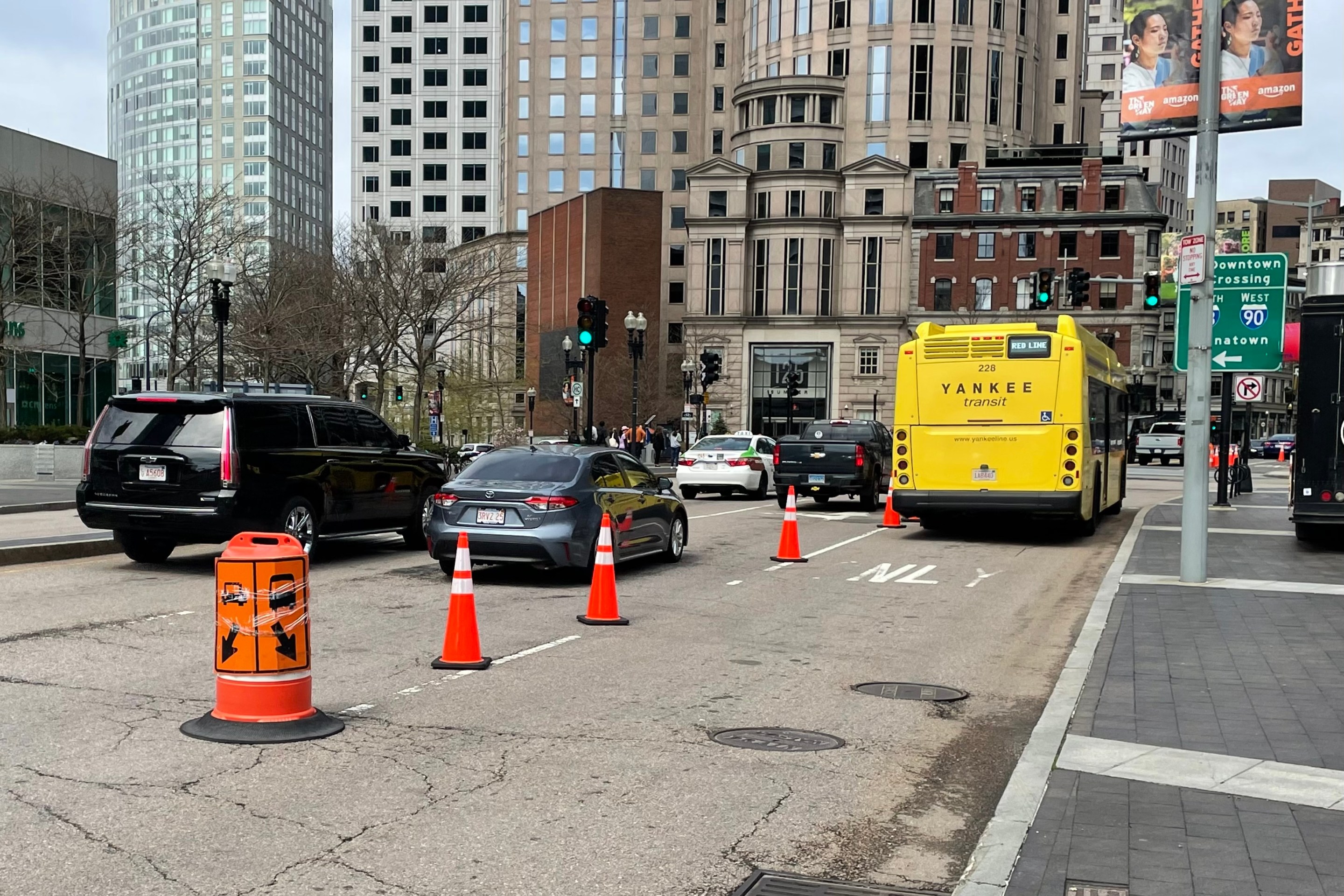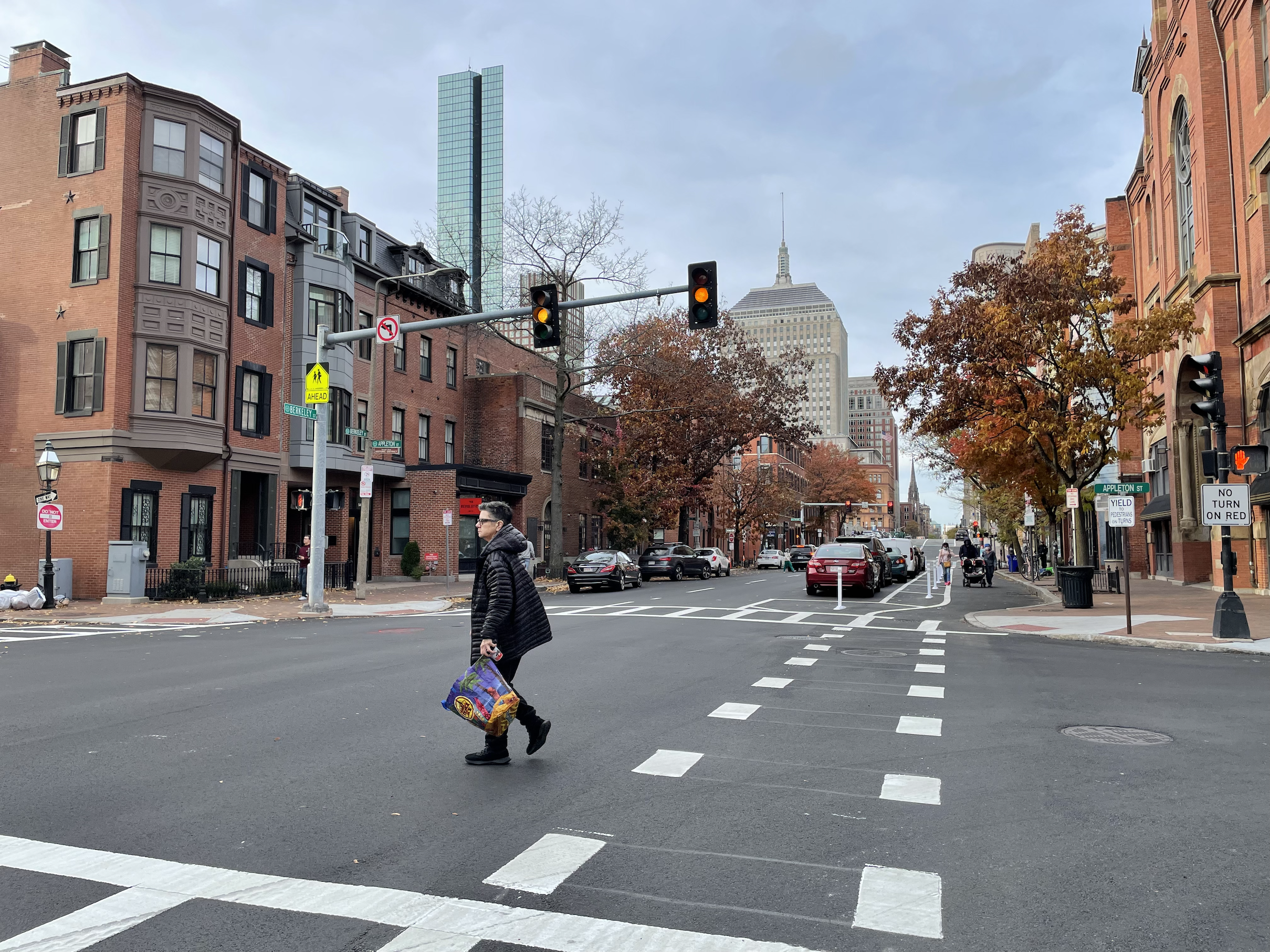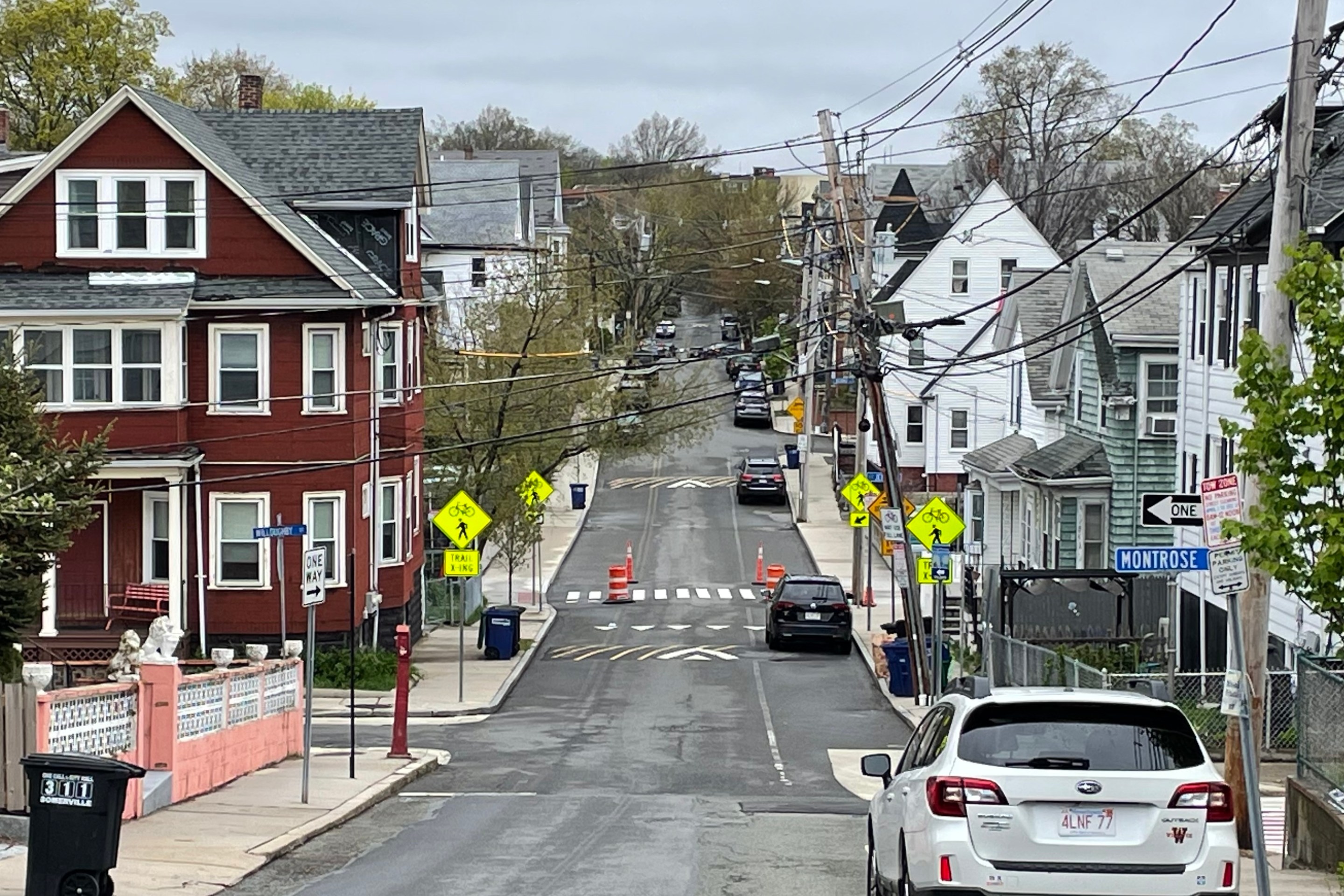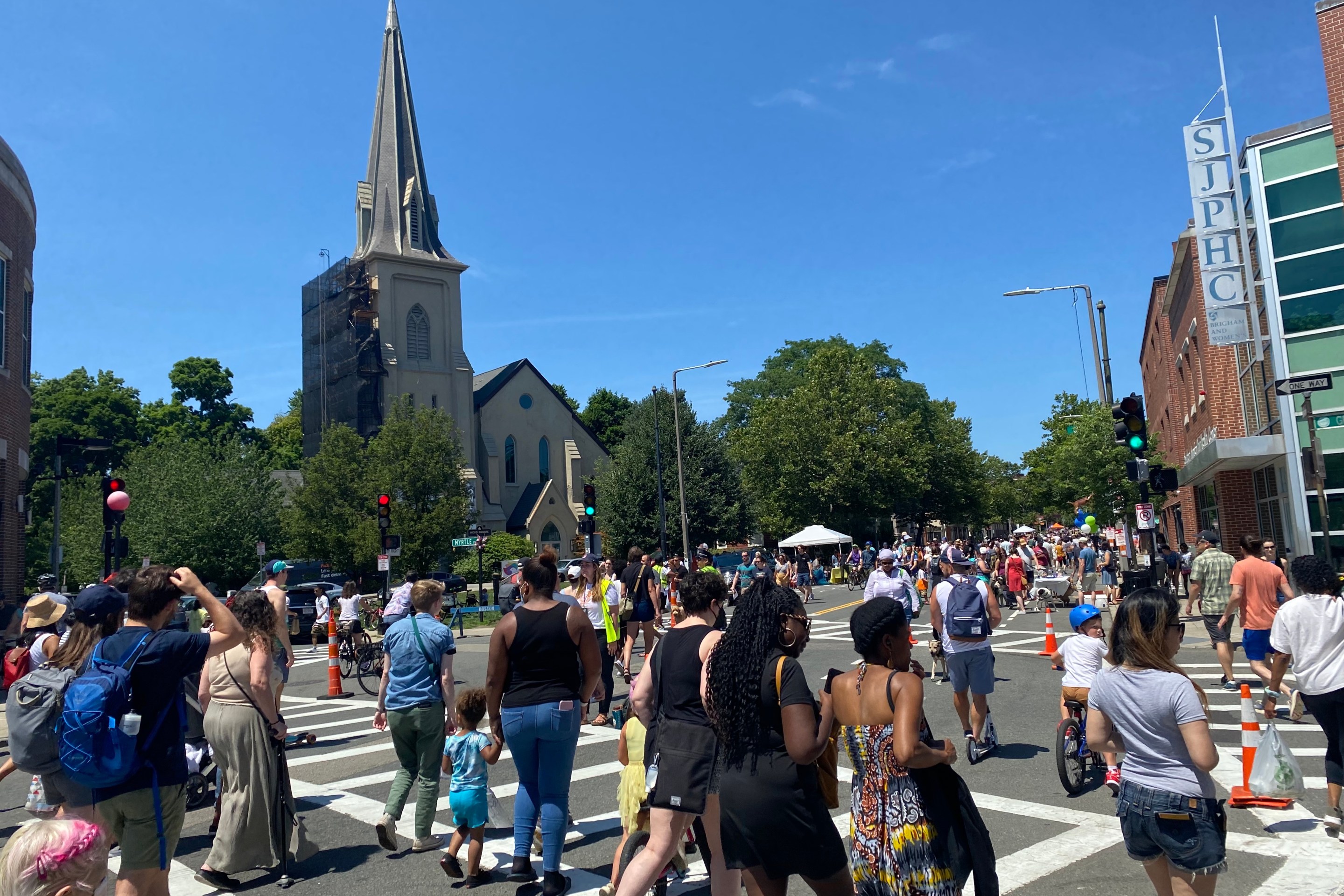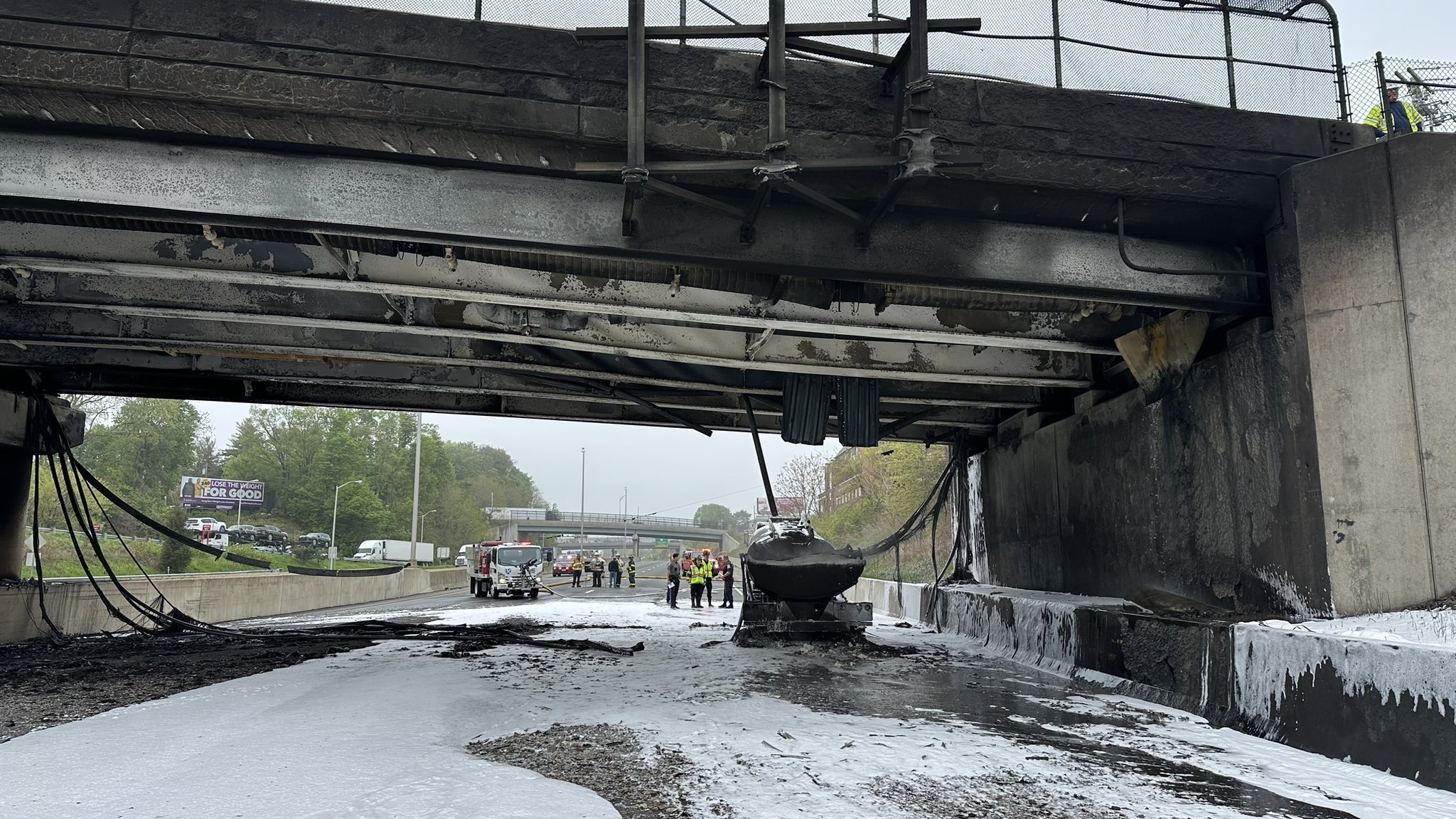State House Update: The Latest on E-Bikes, Low-Income Fares, and Automated Enforcement Bills
4:40 PM EDT on April 12, 2022
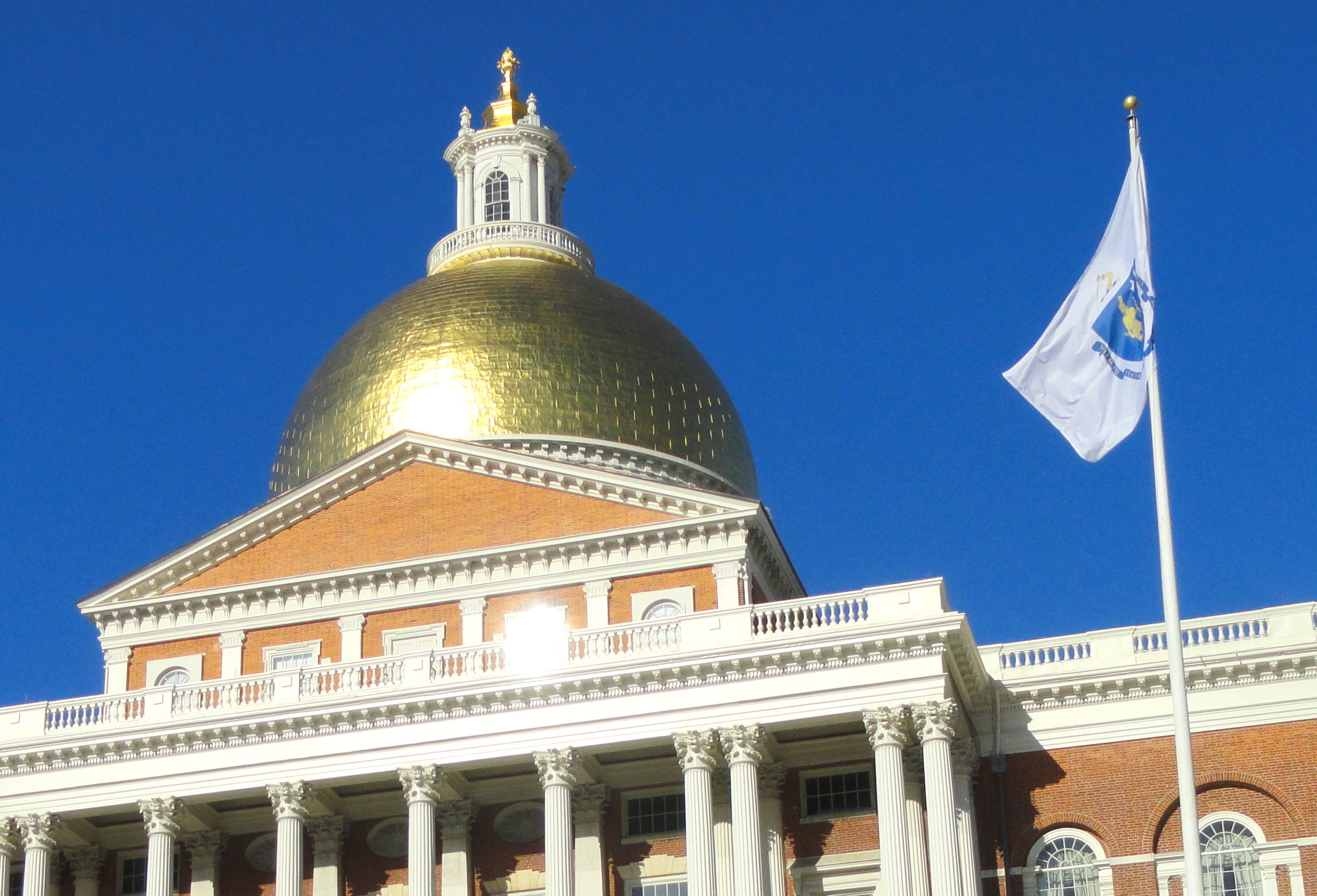
The Massachusetts State House in downtown Boston.
The fate of many of transportation advocates’ priorities in the Massachusetts legislature this session relies, fittingly, on (legislative) vehicles.
The transportation bond bill filed by Governor Charlie Baker and now under consideration in the legislature isn’t a good venue for “big policy ideas,” said Rep. Adrian Madaro (D-Boston), who was vice chair of the joint committee on transportation in the last session.
“Once something is in a bond bill, it goes to the discretion of the executive as to what he or she wants to fund. So we often describe bond bills as aspirational things. Many of them never see the light of day, unfortunately, because the governor decides what to fund and what not to fund,” he said.
So Madaro and others in the legislature who are trying to make transportation safer, healthier, and more affordable are looking for other bills that their policies can hitch a ride on.
Some transportation advocates are looking at a new Senate climate bill as a way to advance more of their priorities. The first draft of that bill has attracted some criticism for proposing big increases in subsidies for electric car buyers while neglecting to include any policies that would expand transit services or promote biking or walking.
Here’s some of what’s in play:
E-bikes
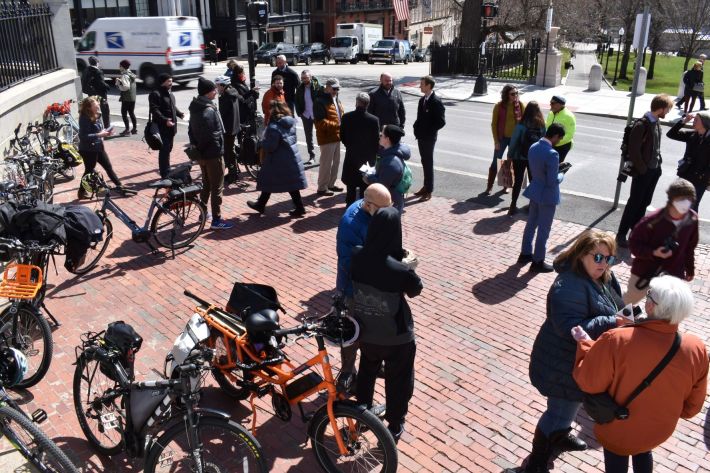
Bike advocates celebrated when the legislature’s joint transportation committee endorsed different House and Senate versions of legislation to define e-bikes, just days after a rally on the State House steps.
But there’s a legislative journey still ahead of the bills if they’re to become law, and getting “favorably reported” by the transportation committee is just a first step, said Galen Mook, executive director of MassBike, in a recent interview.
The intention of the legislation is to define e-bikes so that they can be categorized and regulated, matching the state definition with other states and the federal government and opening up doors that right now aren’t available to the popular vehicles.
“It’s the first bill of a domino effect,” Mook said.
Under current laws, e-bikes are regulated more like mopeds or scooters.
Another e-bike bill, which would authorize rebates for new and used e-bike purchases, has until May 2 to get favorably reported by the Telecommunications, Utilities and Energy Committee.
Transit fares
Buoyed by the political momentum for experimentation with transit fares in Boston and beyond, legislators are taking another shot at pushing the MBTA and other transit agencies in the state to make it cheaper for people to ride.
One piece of legislation, originally filed by Madaro and now adopted by the transportation committee, would call on the T and the regional transit authorities to implement low-income fare programs to provide free or discounted transit fares to qualifying riders.
The legislature has approved the language before, only for it to fall to a veto by Gov. Charlie Baker.
The situation is different now, said Madaro.
“This session has really been when this issue has received a lot more public attention because of and thanks to people like Mayor Michelle Wu,” said the East Boston lawmaker. “It’s really catching steam.”
“I really think that reducing or eliminating fares for low income riders would ensure that those who need public transit are able to access it at rates affordable to them,” Madaro said. “It would also drive up the use of public transit and encourage more workers to use the system to travel to and from their jobs and other employment, reducing congestion on the roads.”
Another bill under consideration would have the T and the RTAs establish pilots to test free bus service on some of their lines.
“There’s lots of communities doing this or looking at this,” said Rep. Christine Barber (D-Somerville). “The momentum has been incredibly helpful in making the case and getting people to understand how critical the bus is to our economy and trying to make public transit more accessible.”
She said making the legislation a pilot rather than permanent is a response to the fact that there are doubts about the fiscal responsibility of removing bus fares.
“The idea of a pilot is to evaluate the impacts on ridership, equity, access, and costs,” Barber said. “Our hope is that the pilot is proof positive that this works.”
The free buses bill has a committee reporting deadline of June 24.
Automated enforcement
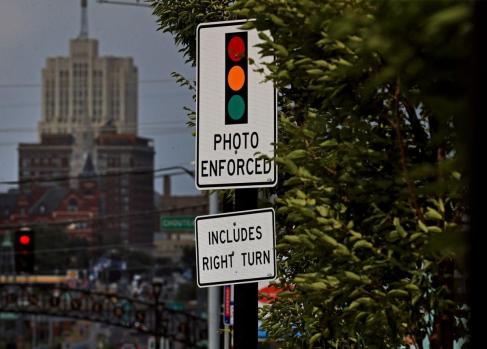
The legislature is also taking another shot at legislation which would allow cities and towns to use automated traffic cameras in Massachusetts.
The bill led by Sen. William Brownsberger (D-Belmont) has been sent for a “study order,” usually a bad sign for the chances of passing in the current session.
But it’s also the subject of a home rule petition from Somerville, which has asked to be allowed to employ automated enforcement of speed limit violations in designated safety zones within the city.
“The city spent a long time working through some of the privacy issues with this bill, and I’m supportive of it,” said Barber. “I do think this is a way we could address speeding and safe driving but do so in a way that reduces bias in police stops.”
Stay in touch
Sign up for our free newsletter
